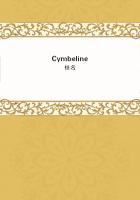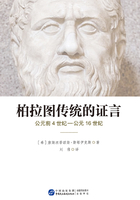It is possible that I should not have strangled him, but I was very much tempted to do so. A prisoner who is happy enough to sleep soundly, all the while he sleeps is no longer a captive, and feels no more the weight of his chains. He ought to look upon the wretch who awakens him as a guard who deprives him of his liberty, and makes him feel his misery once more, since, awakening, he feels all his former woes. Furthermore, the sleeping prisoner often dreams that he is free again, in like manner as the wretch dying of hunger sees himself in dreams seated at a sumptuous feast.
I congratulated myself on not having commenced my great work before he came, especially as he required that the room should be swept out.
The first time he asked for it to be dote, the guards made me laugh by saying that it would kill me. However, he insisted; and I had my revenge by pretending to be ill, but from interested motives I made no further opposition.
On the Wednesday in Holy Week Lawrence told us that the secretary would make us the customary visit in the afternoon, the object being to give peace to them that would receive the sacrament at Easter, and also to know if they had anything to say against the gaoler. "So, gentlemen," said Lawrence, "if you have any complaints to make of me make them. Dress yourselves fully, as is customary." I told Lawrence to get me a confessor for the day.
I put myself into full dress, and the Jew followed my example, taking leave of me in advance, so sure was he that the secretary would set him free on hearing what he had to say. "My presentiment," said he, "is of the same kind as I have had before, and I have never been deceived."
"I congratulate you, but don't reckon without your host." He did not understand what I meant.
In course of time the secretary came, and as soon as the cell-door was opened the Jew ran out and threw himself at his feet on both knees, I heard for five minutes nothing but his tears and complaints, for the secretary said not one word. He came back, and Lawrence told me to go out. With a beard of eight months' growth, and a dress made for love-****** in August, I must have presented a somewhat curious appearance. Much to my disgust I shivered with cold, and was afraid that the secretary would think I was trembling with fear. As I was obliged to bend low to come out of my hole, my bow was ready made, and drawing myself up, I looked at him calmly without affecting any unseasonable hardihood, and waited for him to speak. The secretary also kept silence, so that we stood facing each other like a pair of statues. At the end of two minutes, the secretary, seeing that I
said nothing, gave me a slight bow, and went away. I re-entered my cell, and taking off my clothes in haste, got into bed to get warm again. The Jew was astonished at my not having spoken to the secretary, although my silence had cried more loudly than his cowardly complaints. A prisoner of my kind has no business to open his mouth before his judge, except to answer questions. On Maundy Thursday a Jesuit came to confess me, and on Holy Saturday a priest of St. Mark's came to administer to me the Holy Communion. My confession appearing rather too laconic to the sweet son of Ignatius he thought good to remonstrate with me before giving me his absolution.
"Do you pray to God?" he said.
"From the morning unto the evening, and from the evening unto the morning, for, placed as I am, all that I feel--my anxiety, my grief, all the wanderings of my mind--can be but a prayer in the eyes of the Divine Wisdom which alone sees my heart."
The Jesuit smiled slightly and replied by a discourse rather metaphysical than moral, which did not at all tally with my views.
I should have confuted him on every point if he had not astonished me by a prophecy he made. "Since it is from us," said he, "that you learnt what you know of religion, practise it in our fashion, pray like us, and know that you will only come out of this place on the day of the saint whose name you bear." So saying he gave me absolution, and left me. This man left the strongest possible impression on my mind. I did my best, but I could not rid myself of it. I proceeded to pass in review all the saints in the calendar.
The Jesuit was the director of M. Flaminio Corner, an old senator, and then a State Inquisitor. This statesman was a famous man of letters, a great politician, highly religious, and author of several pious and ascetic works written in Latin. His reputation was spotless.
On being informed that I should be set free on the feast-day of my patron saint, and thinking that my informant ought to know for certain what he told me, I felt glad to have a patron-saint. "But which is it?" I asked myself. "It cannot be St. James of Compostella, whose name I bear, for it was on the feast-day of that saint that Messer-Grande burst open my door." I took the almanac and looking for the saints' days nearest at hand I found St. George--a saint of some note, but of whom I had never thought. I then devoted myself to St. Mark, whose feast fell on the twenty-fifth of the month, and whose protection as a Venetian I might justly claim. To him, then, I addressed my vows, but all in vain, for his feast came round and still I was in prison. Then I took myself to St. James, the brother of Christ, who comes before St. Philip, but again in the wrong. I tried St. Anthony, who, if the tale told at Padua be true, worked thirteen miracles a day. He worked none for me. Thus I
passed from one to the other, and by degrees I got to hope in the protection of the saints just as one hopes for anything one desires, but does not expect to come to pass; and I finished up by hoping only in my Saint Bar, and in the strength of my arms. Nevertheless the promise of the Jesuit came to pass, since I escaped from The Leads on All Hallows Day; and it is certain that if I had a patron-saint, he must be looked for in their number since they are all honoured on that day.















